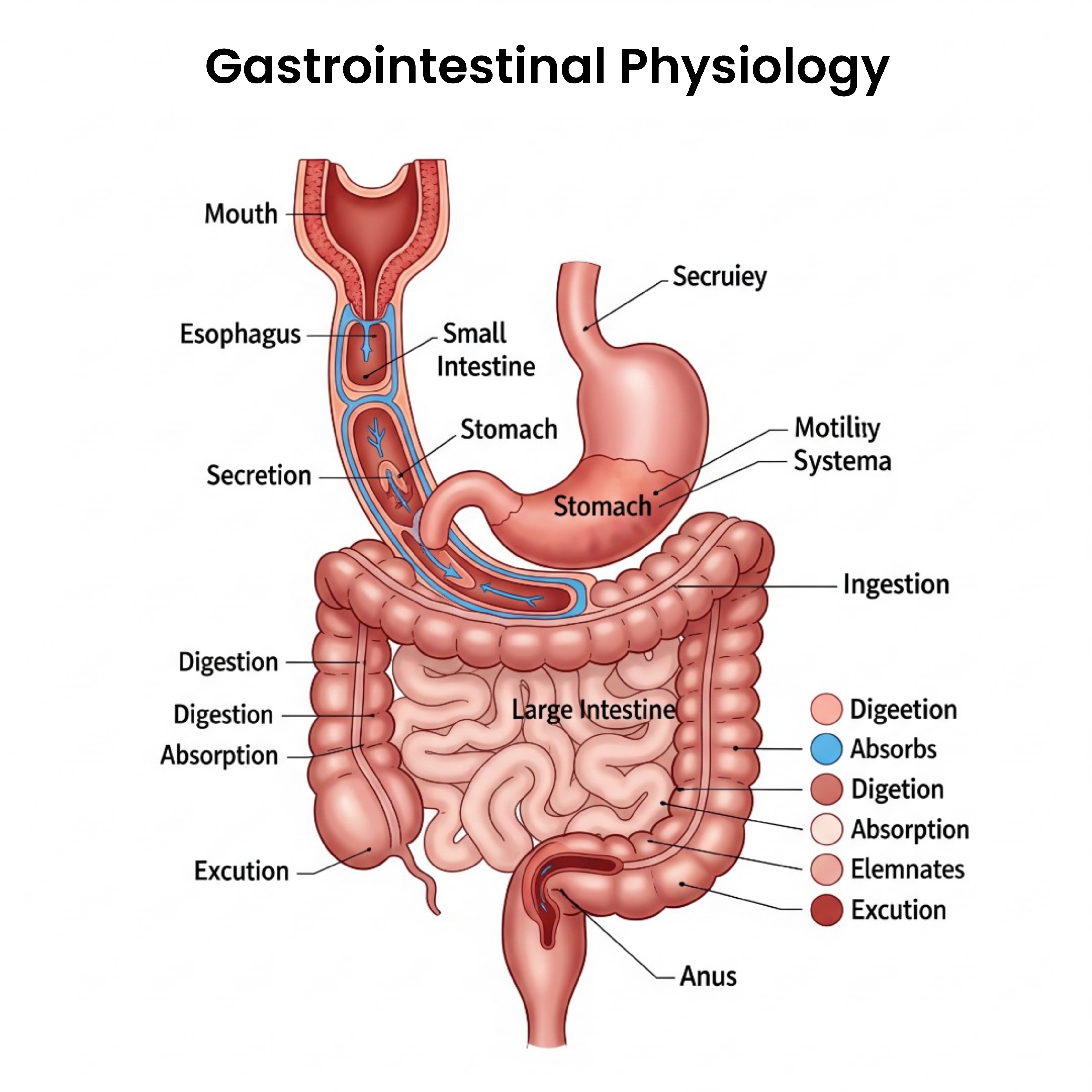Course Details
West African College of Clinical Physiology Sciences (WACCPS)
Duration: 12 Months
Target Audience: Graduates of Human Physiology and recognized health related disciplines
1. Programme Overview
1.1. Programme Title:
Professional Certification in Clinical Gastrointestinal Physiology
1.2. Programme Objectives:
- To provide comprehensive training in GI physiology and pathophysiology
- To develop expertise in diagnostic and functional GI testing
- To enhance clinical management of digestive disorders
- To promote research in neurogastroenterology and motility
1.3. Expected Learning Outcomes:
Graduates will be able to:
- Perform and interpret specialized GI function tests
- Operate high-resolution manometry and pH-impedance systems
- Conduct clinically relevant GI research
2. Programme Structure
8 months coursework + 4 months clinical/research
2.1. Core Modules
Module 1: GI Physiology & Pathophysiology (2 Months)
- Digestive system anatomy and neural control
- Motility patterns from esophagus to colon
- Secretory functions and nutrient absorption
- Pathogenesis of:
- Functional dyspepsia/IBS
- GERD and Barrett's esophagus
- Motility disorders (achalasia, gastroparesis)
Module 2: Diagnostic Techniques (3 Months)
1. Esophageal Function Testing:
- High-resolution manometry
- 24-hour pH-impedance monitoring
2. Anorectal Physiology:
- Anorectal manometry
- Balloon expulsion testing
3. Breath Tests:
- H. pylori, lactose intolerance, SIBO
Module 3: Introduction to Therapeutic Interventions (3 Months)
- Biofeedback therapy for pelvic floor disorders
- Dietary management of functional GI disorders
- Emerging technologies:
- EndoFLIP for esophageal assessment
- Wireless motility capsules
Module 4: Clinical Research (4 Months)
- Design of GI physiology studies
- Analysis of motility data
- Research and Defense on GI functional disorders
3. Teaching Methodology
- Hands-on training with manometry systems
- Clinical rotations in:
- GI motility labs
- Endoscopy units
- Nutrition clinics
- Simulation of complex clinical cases
4. Assessment
- Interpretation of motility tracings
- Clinical case management
- Research
5. Professional Career Pathways
- GI physiologist in hospitals
- Motility lab specialist
- Researcher in neurogastroenterology
6. Accreditation and Quality Assurance
The curriculum aligns with International Education Accreditation Council (IEAC),Approved by WACCPS
This program addresses the critical need for specialized GI physiology services in West Africa.
Apply Now
